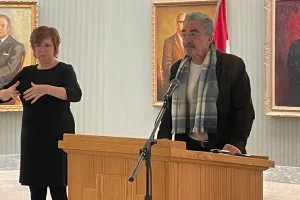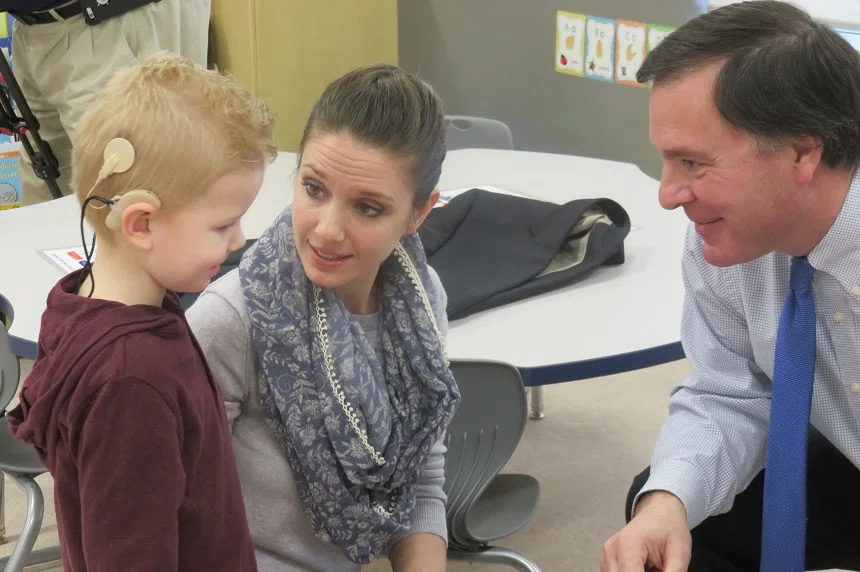Cochlear implants can partially restore hearing, but the surgically implanted devices are not cheap to replace.
While the initial surgery is already covered by the government, the external processors that let cochlear implants function need to be replaced every five to seven years, at a cost of as much as $12,000, according to the Saskatchewan Ministry of Health. That’s why the ministry is implementing a new program that will cut that cost down to just $840, with the ministry picking up the rest of the bill.
“I’ve heard from Saskatchewan residents about the role cochlear implants have in improving their ability to communicate with family, friends and colleagues,” Health Minister Paul Merriman said in a statement.

Rod Rossmo (right) uses a cochlear implant, and says he’s thrilled by the new co-pay system. (Gillian Massie/980 CJME)
“I’m pleased to announce this expansion, which will ensure that these life-changing devices remain accessible for all our residents.”
According to the ministry, about 50 of the processors need replacement each year in Saskatchewan.
The new system will see each resident co-pay $840 when the processor needs to be replaced, which brings Saskatchewan into line with Ontario, Alberta and British Columbia, where similar co-pay models are already in use.
Rod Rossmo, a clinically deaf man, said he was thrilled the co-pay option will offer a cheaper replacement.
“Many cochlear recipients and their families are going to be celebratory today, and extremely relieved with this news to provide continuous service to maintain two precious gifts, the gift of sound and peace and security,” said Rossmo.
Rossmo has cochlear implants, and has been lobbying for the provincial government to offer affordable options for residents for some time. He said he thinks the price reduction for replacements is the biggest step forward to support people with cochlear implants.
“This is a people helping people thing, people listening and responding. This is a very Saskatchewan thing,” said Rossmo.
Nairn Gillies, executive director of the Saskatchewan Deaf and Hard of Hearing Society, celebrated the decision.
“I applaud the government for solving the cochlear implant situation in Saskatchewan,” Gillies said in a statement.
“This action will have a profound impact on the lives of those who rely on this technology to improve their hearing and give them access.”
The co-pay program is expected to cost about $300,000 each year.











